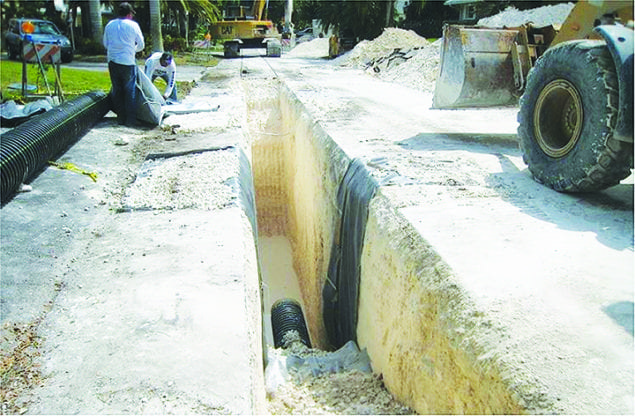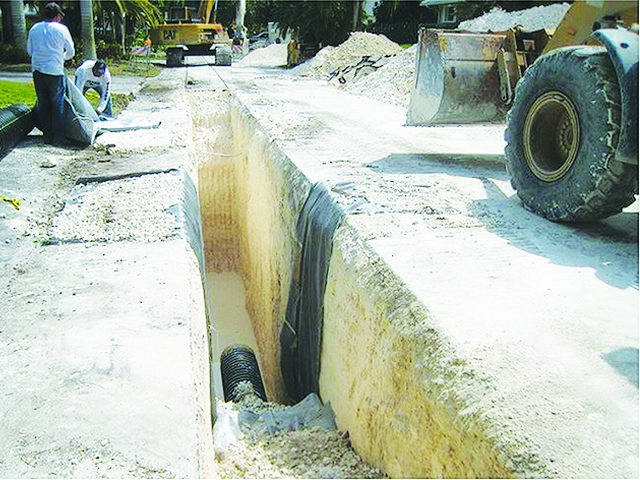
The Florida Department of Environmental Protection announced on June 23 that it had awarded $550,000 to the Village of Palmetto Bay for stormwater infrastructure improvements as part of a nearly $3 million funding program awarding grants to communities across Florida.
The overall program is designed to improve water quality in impaired springs, rivers, lakes and estuaries, which need help meeting Florida’s stringent water-quality standards.
The money for Palmetto Bay is to be used for catch basin retrofits, installation of additional catch basins, sedimentation boxes, baffle boxes and exfiltration trenches throughout the village. This will help reduce pollutants flowing into Biscayne Bay, which is southeast Florida’s largest coastal estuary.
Drew Bartlett, DEP deputy secretary for ecosystems restoration, explained the importance of the program.
“The department is eager to partner with communities to improve water quality in coastal estuaries,” Bartlett said. “Healthy waterways are a top priority for Florida’s residents and visitors.”
Stormwater runoff is generated when rain flows over land and other surfaces and does not seep into the ground. As this runoff flows over paved streets, parking lots and building rooftops, it accumulates debris, nutrients, sediment or other pollutants that could adversely affect water quality if the runoff is left untreated and runs into nearby surface waters.
Mayor Eugene Flinn said he was pleased to see the return of state funding to Palmetto Bay for such projects.
“Now that I’m mayor again, I’m resuming the policy of trying to bring back tax dollars to our area,” Mayor Flinn said. “Storm water is a huge issue.
“Whether you believe in sea level rise or not, everybody sees water sitting on their street and park lane, and it’s something we needed to address. That’s one of the reasons we incorporated. We were not getting the attention we needed to get being part of Greater Miami-Dade County. That money’s going to go very far in assisting us with our storm water efforts that we have done annually under my leadership.”
Mayor Flinn said there was additional money requested through the village’s legislative budget, but that it was vetoed by the governor.
Under the grant requirements, the village will provide a minimum of 50 percent of the total project cost in matching funds, of which at least 25 percent are provided by the local government. The grant funds are used for construction of best management practices, monitoring to determine pollutant load reductions, or public education activities specifically associated with the project.
Since 2002, the department has awarded approximately $120 million in funding, including $6.1 million to date in fiscal year 2016-17.






